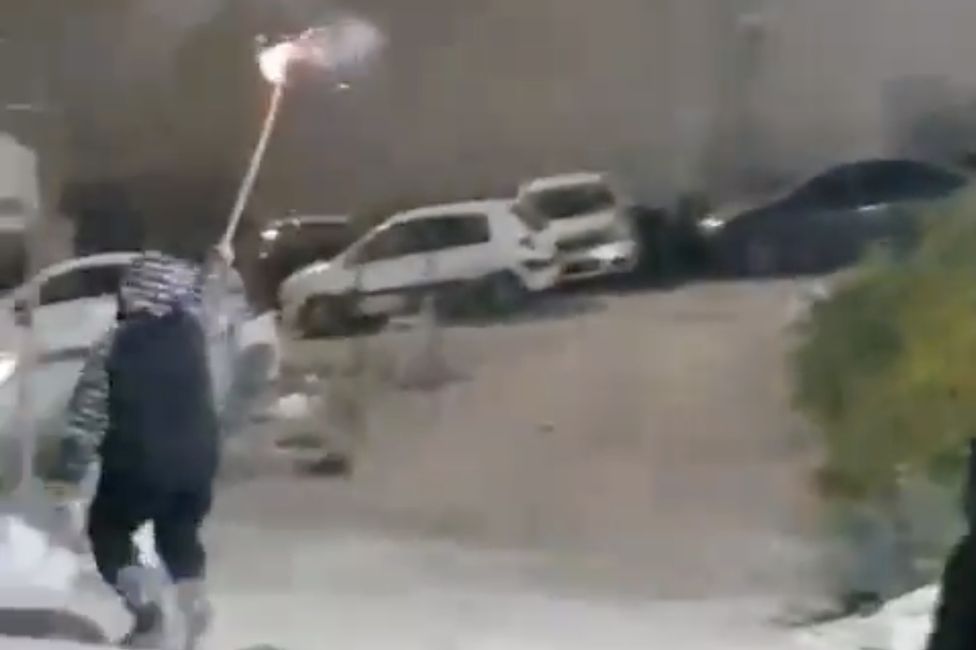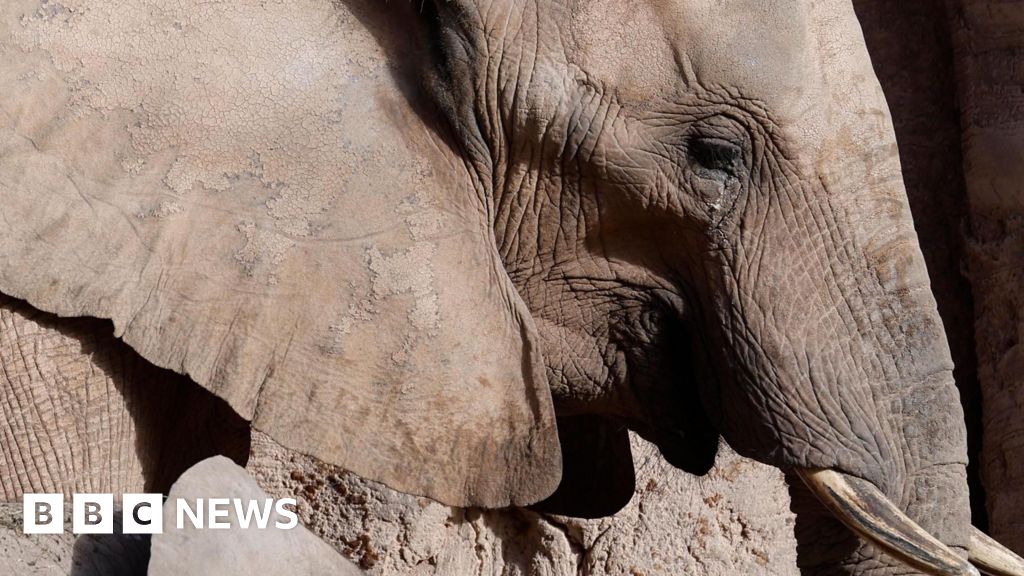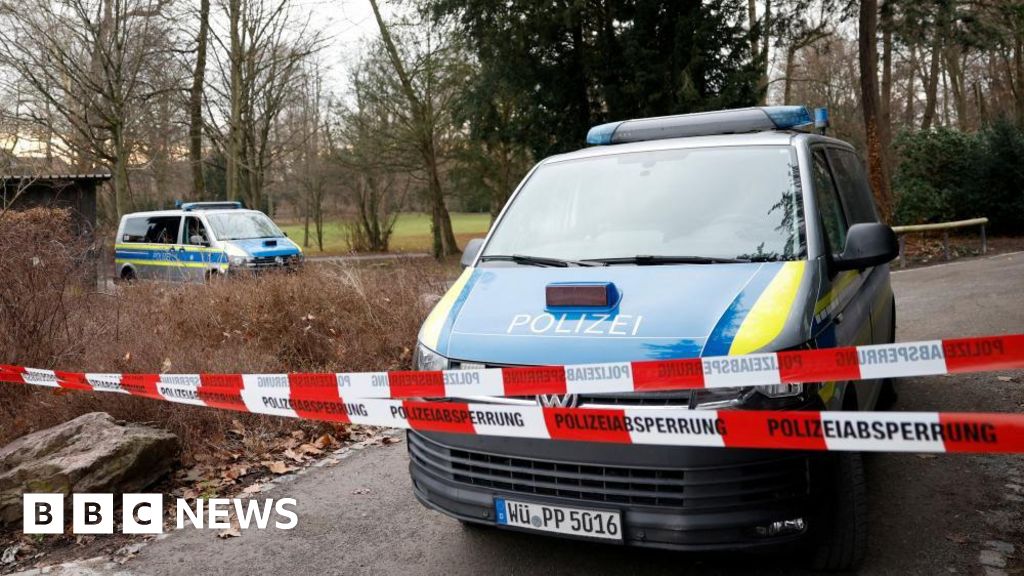ARTICLE AD BOX

Rami Hamdan Al-Halhouli, 12, holds a firework aloft moments before being shot by Israeli police.
By Joel Gunter
BBC News, in Shuafat refugee camp
In the last few seconds of his life, Rami Hamdan Al-Halhouli lit a firework and held it above his head. Then there were three sharp cracks - the first was a police officer's bullet, the second was the firework leaving Rami's hand, the third was the sound of the firework bursting over Rami's body in a bright shower of red and gold.
Rami al-Halhouli was a 12-year-old Palestinian boy born and raised in Shuafat, a refugee camp in occupied East Jerusalem that is home to about 16,000 people. On Tuesday night, Rami was playing with his brother and friends in front of the family home when they urged him on to light a firework. He pointed it away from him, roughly in the direction of some Israeli border police, but aimed up into the sky.
According to video of the incident, before even the firework could go off Rami was hit by a bullet fired by a border police officer positioned some distance away. In a statement, the police said a single shot was fired at a suspect who had "endangered the forces while firing aerial fireworks in their direction".
The police have not yet released Rami's body to the family. The police did not respond to specific questions about the shooting, but the family told the BBC on Wednesday that the bullet hit Rami in his heart.
"There was no hope," said his older brother Mahmoud, 19, who rushed to Rami the moment he was shot. "He was already dead."
Rami's older brother Mahmoud, 19, looks at the spot where Rami was killed on Tuesday by a single bullet.
Rami's mother Rawia, 50, was inside the family home when the shot rang out. When she heard someone shouting her name she ran out into the night.
"I did not think anything too bad at first because there had been no clashes with the police or any demonstrations around, no sounds of gunshots or percussion grenades," she said.
"Then I saw Rami's body lying on the ground and I thought he had fallen down from the games the children were playing. When they turned his body, I saw the hole in his chest. The bullet was in his heart.
"Then I began to scream."
Rami was one of six Palestinians were shot dead by Israeli security forces in occupied East Jerusalem and the West Bank on Tuesday, marking a grim start to the Islamic holy month of Ramadan in the city, with the mood already clouded by the war taking place in the Gaza Strip between Israel and the Palestinian armed group Hamas.
At a press conference on Wednesday morning, Israel's far-right National Security Minister Itamar Ben-Gvir hailed the officer who shot Rami as a "hero and a warrior", saying he had done an "exemplary job" and would receive the full support of the minister's office.
Mr Ben-Gvir branded Rami al-Halhouli a "terrorist".
Rami's mother Rawia holds a photo of her son. "The bullet was in his heart," she said.
Not far from the police station where the minister spoke, on Wednesday, Rawia al-Halhouli was sitting in her living room surrounded by friends, relatives and tearful mourners who came one at a time to pay their respects.
Outside in the courtyard, Rami's father Ali, 60, was sitting with the men of the family and friends, unable for more than a few minutes to hold back his tears.
"I ask you, a kid the age of 12, how is he a terrorist?" Ali said. "He was fasting and he broke his fast and he went out afterwards and he was playing with the other kids. It is Ramadan, they set off fireworks. They were playing."
Rami was a "good kid", Ali said. "He was good at school, he was smart, he helped our neighbours. This was his neighbourhood and he never went any further. He was not a troublemaker."
The officer who killed Rami was "just a guy following orders", he added.
"It really all comes from Ben-Gvir," he said. "He will not let any Palestinian have peace."
Rami's father Ali wiped away tears as he described his son. "He was not a troublemaker," he said.
The BBC asked the Israeli police on Wednesday to provide any evidence it had showing violence, rioting or any other incidents of concern in the area in the days or hours leading up to the shooting, or any evidence against Rami al-Halhouli, but they did not provide any. They referred instead to a written police statement published on Tuesday which said described "a violent disturbance occurred in Shuafat, including the throwing of Molotov cocktails and direct shooting of aerial fireworks towards security forces".
Leaflets written in Arabic and distributed by Israeli police in Shuafat camp on Tuesday - copies of which were provided to the BBC by residents - said that 15 to 20 youths had organised to go to evening prayers "with the aim of violating the rules, launching fireworks, and throwing Molotov cocktails".
"The police will never tolerate acts of violence of any kind and will take strict action against anyone who acts violently or attempts to harm them," the leaflets said.
There has been a surge in violence in the occupied West Bank since the beginning of the war in Gaza. At least 418 Palestinians - including members of armed groups, attackers and civilians - have been killed by Israeli forces, according to the UN. In the same period, 15 Israelis, including four security forces personnel, have been killed.
According to the most up-to-date figures from the Israeli human rights organisation B'Tselem, 519 children were killed by Israeli in East Jerusalem and the West Bank between 2000 and the beginning of October 2023.
"Israel has a policy of being light on the trigger when it comes to dealing with Palestinians," said Dror Sadot, a spokeswoman for B'Tselem.
"We have documented dozens of cases like this over the years. We haven't investigated this specific case yet, in Shuafat, but it appears that the boy presented no danger to the police."
Salim Anati, a doctor who has lived and worked in Shuafat camp since it was built in 1965, told the BBC that he had treated at least 20 children there during his years who had lost one or both eyes after being hit by rubber bullets, and knew at least 10 who were killed.
"So many children are injured, so many are imprisoned, if they are not imprisoned they are not allowed to leave their homes," Dr Anati said. "It is a very hard life here for a child."
Rami had "not even been lucky enough to escape from the camp," he added. "All his childhood was under occupation".
On the last day of his life, Rami slept until noon, his mother Rawia said, and then played games inside the house until she made him help her prepare for Iftar - the evening meal that breaks the daily Ramadan fast at sunset. After the family ate, Rami went to mosque for prayers, then came home and asked his parents for pocket money to go to the shop. His father said no, he wanted Rami to stay home.
"But I went to him and told him quietly, I will give you some pocket money if you go straight there and come back," Rawia said.
"Within five minutes of leaving the house, he was gone."
Muath al-Khatib contributed to this report. Photographs by Joel Gunter.

 10 months ago
19
10 months ago
19








 English (US) ·
English (US) ·